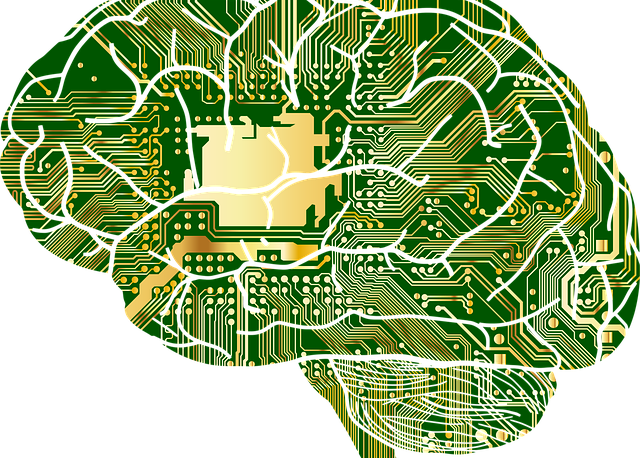In the ever-evolving sphere of software development, the relentless pursuit of excellence and efficiency reigns supreme. With software systems growing increasingly intricate and interconnected, the demand for robust testing methodologies has surged exponentially. Enter Artificial Intelligence (AI), a technological juggernaut that is revolutionizing industries across the globe. In this exploration, we shall embark on a journey through the symbiotic domain of AI and software testing, uncovering novel dimensions, pioneering techniques, and the transformative potential of this fusion.
AI, an all-encompassing term, encapsulates an array of technologies, such as machine learning, natural language processing, neural networks, and more. These cutting-edge tools are resuscitating the landscape of software testing, rendering it more effective and efficient than ever before. Let’s delve into the multifaceted ways AI is catalyzing this paradigm shift, while also introducing fresh insights into this dynamic partnership.
1. Cognitive Test Scenario Generation: AI-powered tools possess the capability to autonomously fabricate test scenarios based on application specifications and requirements. These test scenarios are not only exhaustive but also adaptive, evolving in tandem with changes in the software. By mirroring human cognitive processes, AI discerns latent vulnerabilities, delves into edge cases, and assembles a comprehensive test suite, leaving no stones unturned.
2. Proactive Bug Detection: Traditional bug detection methods often rely on post-development testing, incurring significant time and cost. AI is revolutionizing this aspect by preemptively identifying potential defects even before code execution. Machine learning models scrutinize the codebase, unearth patterns, and pinpoint areas prone to defects. This proactive approach dramatically reduces debugging efforts and augments software quality.
3. Dynamic Test Environment Orchestration: Managing test environments can be a logistical challenge. AI-driven solutions dynamically generate, configure, and oversee test environments to faithfully replicate the production setting. This not only saves time but also fortifies the reliability of test outcomes.
4. Autonomous Test Execution: AI-powered test automation frameworks autonomously execute test scripts, analyze results, and flag defects. These frameworks exhibit self-learning capabilities, adept at adapting to software modifications, rendering them indispensable in agile and continually evolving development environments.
5. Advanced Natural Language Requirement Analysis: Parsing and validating intricate software requirements can be a laborious task. AI-powered natural language processing algorithms excel in parsing natural language requirements, identifying ambiguities, and proffering improvement suggestions, thereby ensuring a robust foundation for the development process.
6. User-Centric Behavior-Driven Testing with AI: AI contributes to behavior-driven development by generating test scenarios based on user stories. By comprehending the context and objectives of each feature, AI-driven tools craft test cases closely aligned with end-user expectations, elevating product quality and enhancing user satisfaction.
7. Performance Testing Fine-Tuning: Performance testing, particularly for large-scale systems, can be resource-intensive. AI optimizes performance testing by predicting peak loads, identifying bottlenecks, and proposing configuration adjustments for optimal system performance, thereby enhancing user experience.
8. Artificial Test Data Generation: Crafting realistic and diversified test data is often a challenge. AI excels in generating synthetic test data that closely mirrors real-world scenarios, ensuring comprehensive and realistic testing.
9. Seamless Integration of Continuous Testing with DevOps: AI plays a pivotal role in the seamless incorporation of testing into the DevOps pipeline. Continuous testing, empowered by AI, enables swift feedback and early defect identification, nurturing a culture of quality throughout development.
10. Sentiment Analysis for User Feedback and Improvement: Beyond functional testing, AI scrutinizes user feedback, reviews, and sentiment to identify areas for enhancement. This user-centric approach ensures software evolution aligns with user expectations, driving customer satisfaction.
11. Automated Test Maintenance: As software evolves, test scripts require updates. AI streamlines test maintenance by detecting codebase changes and adapting test scripts accordingly, ensuring test relevancy throughout the software’s lifecycle.
12. Intelligent Test Case Prioritization: Not all test cases are created equal. AI evaluates the impact of different test cases on software functionality and prioritizes them accordingly, guaranteeing critical aspects receive thorough testing, even in resource-constrained scenarios.
13. Enhanced Security Testing and Vulnerability Assessment: AI-driven security testing tools identify vulnerabilities, detect potential security threats, and provide recommendations to bolster application security. This is imperative in an environment where cybersecurity threats are in a perpetual state of flux.
14. Insightful Test Reporting and Visualization: AI generates comprehensive test reports enriched with illuminating visualizations, aiding stakeholders in comprehending testing results and making well-informed decisions.
In conclusion, the convergence of AI and software testing is fundamentally reshaping the quality assurance landscape. AI’s capacity to augment human capabilities, automate repetitive tasks, and unearth concealed defects heralds a new epoch in software development. As AI technologies continue to advance, we anticipate even more innovative applications in the realm of software testing, cementing its role as an indispensable ally in the pursuit of efficient, effective, and immaculate software. Embracing AI in software testing is no longer merely a strategic option but an imperative for staying competitive in the dynamic world of software development. The future of software testing promises an even brighter, more dependable, and efficient era, where AI blazes a trail towards excellence and innovation in software development and quality assurance.
